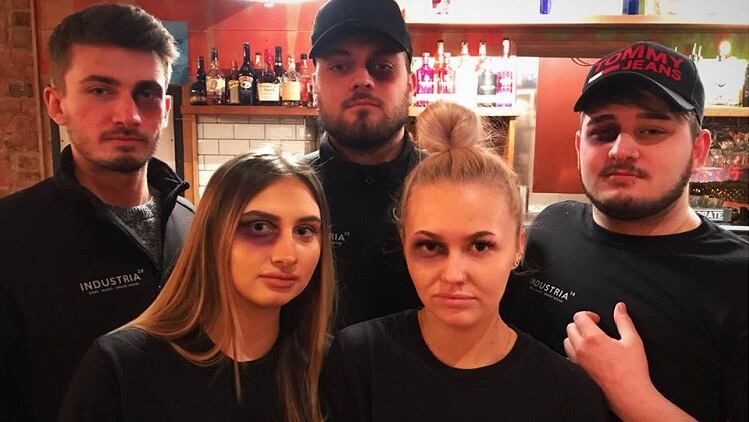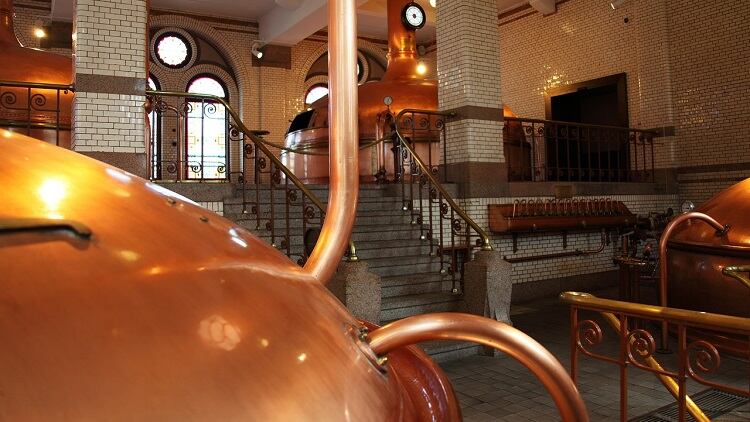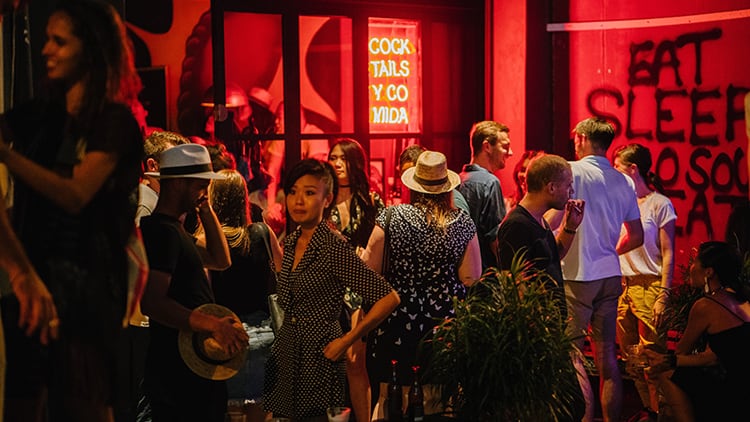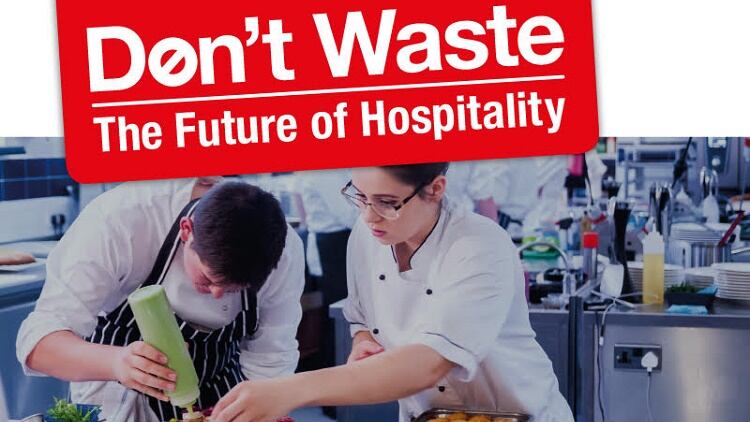Pubgoers might have had to do a double take when they ordered a drink, but staff at a host of Mansfield pubs used the make-up to start conversations about a ‘no stigma, no secrets, no shame’ campaign.
Fifteen bars and pubs took part in the scheme, which was centred round a message that abuse is not just physical.
Asking the questions
The idea came from the Mansfield Association of Licensed Venues (MALV) after being approached by the Nottinghamshire Independent Domestic Abuse Services (NIDAS).
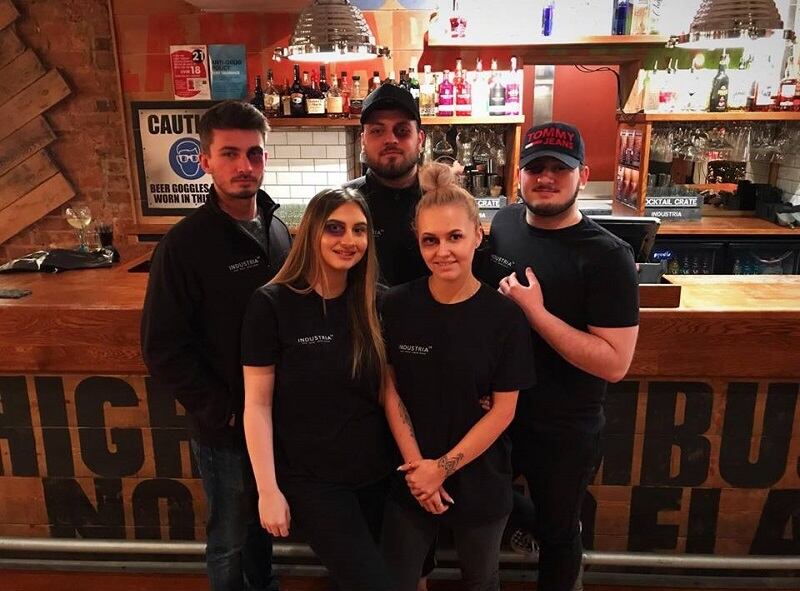
NIDAS project manager Sue Ready said the service wanted to encourage the view that there is a collective responsibility to raise awareness, including the role of businesses.
She said the campaign message came from survivors who used the service and added: “Their hope is that we raise awareness far and wide, and that support should be available at the earliest opportunity. Victims don’t always know they’re experiencing domestic abuse until someone asks the question.”
NIDAS ambassadors also visited the pubs and bars involved on the nights of the initiative and spoke to customers.
Jonathan Edwards, chair of MALV and the operator of four bars in the town, said there was positive feedback on social media after the event on the weekend after Valentine’s Day.
He said: “We just tried to do our bit to raise awareness around domestic violence because we understand that any social environment could be a situation where domestic violence may start.
“We also have posters in the toilets with tear-off slips so people can access the services really easily.”
What services can you point customers to?
Women's Aid and Refuge - 0808 2000 247 24
Respect UK, for male victims - 0808 8024040
No excuse
Ready said although there was a link between abuse and alcohol, it was not an excuse and licensed venues have a positive role to play.The aim of the campaign was not to blame licensed venues for abuse, the service said.
She said: “The link between domestic abuse and alcohol is a contributing factor in a lot of individuals we are coming across.
“A clear message from us is that alcohol should not be used in that way – as an excuse, essentially. There is no excuse for abuse.
“We want to really push the message that alcohol can be a positive thing, you go out for a drink socially, it doesn't mean that everyone will adopt abusive behaviour.”
Pubs can help campaigns reach out to different demographics, including men, the charity believes.
This includes having policy to support staff, helping the team manage any disclosures or signs from customers and how to respond if someone is in trouble.
These campaigns can be carried out with the police, including Ask Angela where customers can discreetly ask for help escaping a dangerous or uncomfortable situation.

